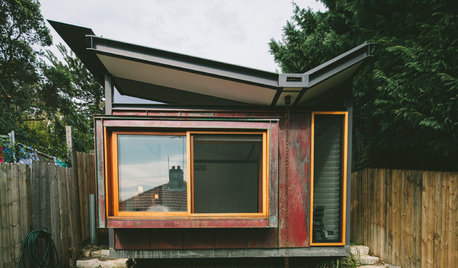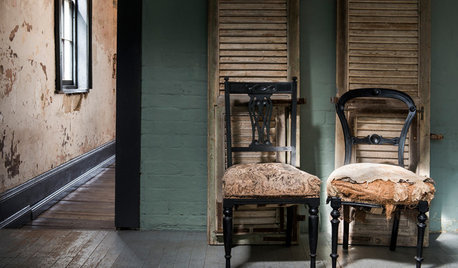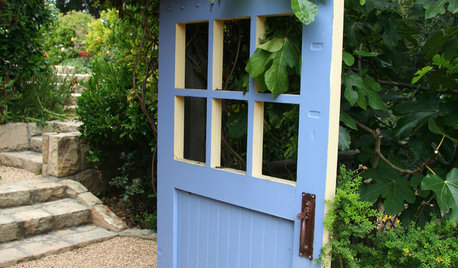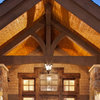Old house, Copper wire but no ground
av8r
16 years ago
Related Stories

ARCHITECTUREStilt Houses: 10 Reasons to Get Your House Off the Ground
Here are 10 homes that raise the stakes, plus advice on when you might want to do the same
Full Story
CURB APPEALModern Materials: Copper, Architecture's Natural Beauty
The rich patina is just the beginning — copper for home exteriors is strong, shapable and highly recyclable
Full Story
GREEN BUILDINGThe Big Freeze: Inventors Break New Ground to Keep Things Cool
Old-fashioned fridges can be energy guzzlers, but there are more eco-friendly ways of keeping food fresh, as these global innovations show
Full Story
COTTAGE STYLEHouzz Tour: Beach Shack Reborn as a Copper-Clad Cottage
A tranquil home with a copper exterior lets in ocean air, sunlight and greenery on a challenging site
Full Story
KITCHEN DESIGNSurprise Contender: Copper for Kitchen Countertops
Unexpected and full of character, copper is getting buffed for its growing appearance on the countertop scene
Full Story
REMODELING GUIDESThe Hidden Problems in Old Houses
Before snatching up an old home, get to know what you’re in for by understanding the potential horrors that lurk below the surface
Full Story
BASEMENTSRoom of the Day: Swank Basement Redo for a 100-Year-Old Row House
A downtown Knoxville basement goes from low-ceilinged cave to welcoming guest retreat
Full Story
DECORATING GUIDESNo Neutral Ground? Why the Color Camps Are So Opinionated
Can't we all just get along when it comes to color versus neutrals?
Full Story
LANDSCAPE DESIGNArtful Salvage: Old Doors Decorate the Garden
In a fence or leading only to imagination, salvaged doors can create lots of intrigue for little cash
Full Story
GARDENING GUIDESHow to Prep Your Ground for a Healthy New Lawn
Seed or sod that falls on weedy, lumpy soil is a wasted effort. Follow these steps to ensure that your new lawn will thrive
Full Story






itsunclebill
rtscoach
Related Professionals
American Canyon General Contractors · Boardman General Contractors · Deer Park General Contractors · Holly Hill General Contractors · Owosso General Contractors · Summit General Contractors · University Heights General Contractors · Williamstown General Contractors · East Brunswick Solar Energy Systems · Muscatine Solar Energy Systems · Hialeah Gardens Home Automation & Home Media · Mount Lebanon Home Automation & Home Media · Odenton Home Automation & Home Media · San Mateo Home Automation & Home Media · Tampa Home Automation & Home Mediaevans
av8rOriginal Author
rtscoach
fa_f3_20
DavidR
rtscoach
manschiu_hotmail_com
bastiag_wi_rr_com